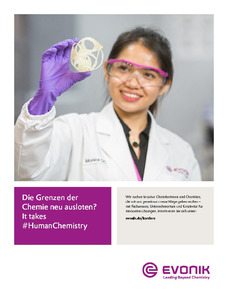| dc.date.accessioned | 2022-01-31T14:42:48Z | |
| dc.date.available | 2022-01-31T14:42:48Z | |
| dc.date.issued | 2021-07-29 | |
| dc.identifier | doi:10.17170/kobra-202112095211 | |
| dc.identifier.uri | http://hdl.handle.net/123456789/13579 | |
| dc.description.sponsorship | Gefördert im Rahmen des Projekts DEAL | ger |
| dc.language.iso | eng | eng |
| dc.rights | Namensnennung 4.0 International | * |
| dc.rights.uri | http://creativecommons.org/licenses/by/4.0/ | * |
| dc.subject | additive manufacturing | eng |
| dc.subject | INCONEL 718 | eng |
| dc.subject | laser powder bed fusion | eng |
| dc.subject | residual stress | eng |
| dc.subject | synchrotron measurements | eng |
| dc.subject.ddc | 620 | |
| dc.title | A Novel Approach to Robustly Determine Residual Stress in Additively Manufactured Microstructures Using Synchrotron Radiation | eng |
| dc.type | Aufsatz | |
| dcterms.abstract | In recent decades additive manufacturing (AM) for years has been in focus of academia and industry as its underlying production principle allows for the realization of designs of unprecedented geometrical complexity. However, often such structures are not realized due to the lack of understanding of structural and mechanical properties, this fact amongst others related to the unique microstructures established by the related processes. In this context, residual stresses, highly affected by the scan strategy and process parameters used, play an essential role. Generally, various methods and approaches can be used to determine residual stress states experimentally. However, especially in case of the unique microstructures formed by AM, most standard procedures cannot be applied reliably. Commonly used methods based on X-ray diffraction rely on laboratory X-ray sources and synchrotron radiation. In present work, a novel method is proposed for robustly calculating residual stresses based on the linear regression method (similar to the sin2 ψ approach in reflection mode). Data obtained by use of synchrotron radiation in transmission mode are applied. To assess the reliability of the novel procedure, results are validated using simulations and in situ tensile tests. For these tests the well-known Ni-base alloy INCONEL 718 processed by laser powder bed fusion (LPBF), being characterized by a complex microstructure, and a conventionally manufactured 100Cr6 steel sample are used. | eng |
| dcterms.accessRights | open access | |
| dcterms.creator | Aminforoughi, Behzad | |
| dcterms.creator | Degener, Sebastian | |
| dcterms.creator | Richter, Julia | |
| dcterms.creator | Liehr, Alexander | |
| dcterms.creator | Niendorf, Thomas | |
| dc.relation.doi | doi:10.1002/adem.202100184 | |
| dc.relation.projectid | Grant Number: 346979276 | |
| dc.subject.swd | Rapid Prototyping <Fertigung> | ger |
| dc.subject.swd | Inconel 718 | ger |
| dc.subject.swd | Selektives Laserschmelzen | ger |
| dc.subject.swd | Eigenspannung | ger |
| dc.subject.swd | Synchrotronstrahlung | ger |
| dc.type.version | publishedVersion | |
| dcterms.source.identifier | eissn:1527-2648 | |
| dcterms.source.issue | Issue 11 | |
| dcterms.source.journal | Advanced Engineering Materials | eng |
| dcterms.source.volume | Volume 23 | |
| kup.iskup | false | |
| dcterms.source.articlenumber | 2100184 | |


